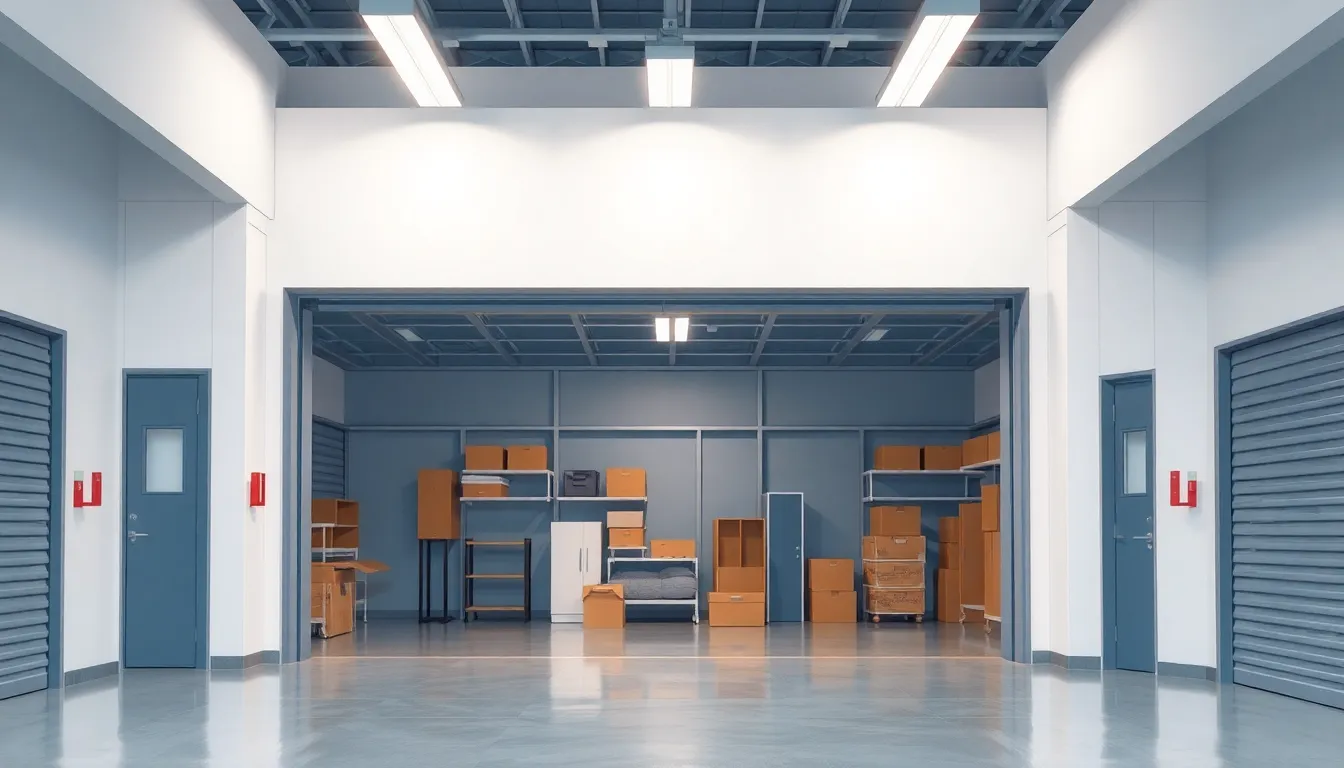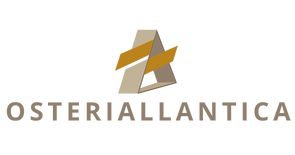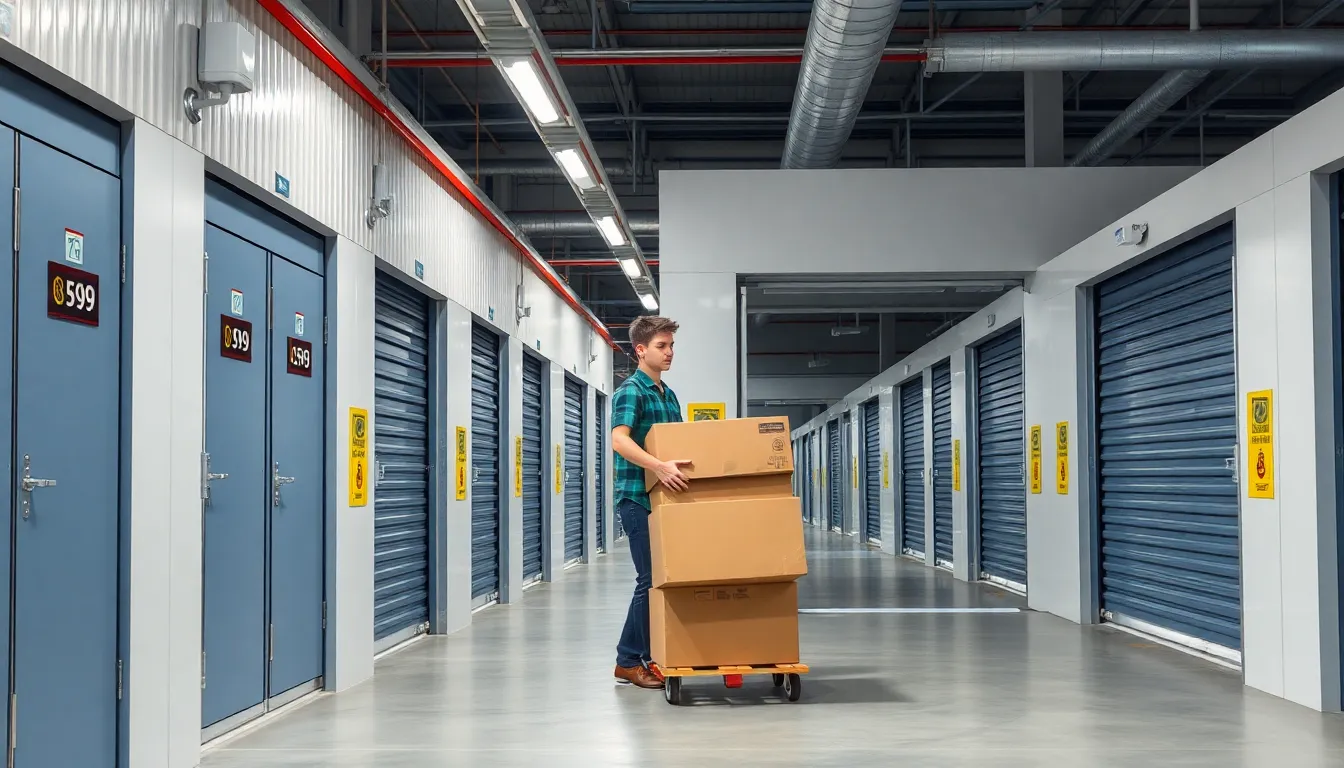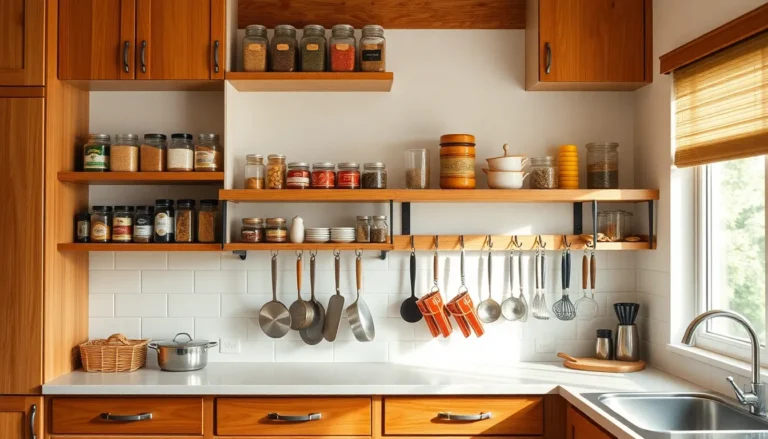In a world where clutter seems to multiply faster than rabbits, self-storage units have become the unsung heroes of organization. Imagine a magical place where old furniture, holiday decorations, and that exercise bike you promised to use can live happily ever after—out of sight and out of mind. These units offer a practical solution for anyone drowning in their own belongings, providing a safe haven for items that just won’t fit in the closet anymore.
But self-storage isn’t just about freeing up space; it’s about reclaiming your sanity. Whether you’re moving, renovating, or simply trying to find your living room under that mountain of boxes, these units are the ultimate sidekick. With flexible options and security features that would make Fort Knox jealous, self-storage units are ready to help anyone tackle their clutter crisis with a smile. So, let’s dive into the world of self-storage and discover how it can transform chaos into calm.
Table of Contents
ToggleOverview of Self-Storage Units
Self-storage units provide a dedicated space for individuals and businesses to store belongings temporarily or long-term. These facilities offer various sizes of units, accommodating diverse needs from small boxes to large furniture. Security features are a priority, with many locations implementing surveillance cameras, gated access, and on-site staff, ensuring a safe environment for stored items.
Temperature-controlled units cater to sensitive items, protecting them from extreme weather. Cost effectiveness appeals to many, as renting a self-storage unit can be more affordable than moving to a larger home or office. Customers often appreciate the flexibility of lease agreements, which typically range from month-to-month to longer-term options.
Businesses utilize self-storage units for inventory management. They store excess stock, seasonal merchandise, or equipment without committing to more expensive retail or warehouse space. Families often turn to self-storage during transitions such as relocations, renovations, or downsizing. These units facilitate easier organization by allowing individuals to declutter their homes without discarding valuable items.
Access hours vary, on average ranging from early morning to late evening, enabling convenient retrieval of belongings. Many facilities provide online account management, allowing users to pay bills, reserve units, and manage access remotely.
Looking at the convenience factor, self-storage units play an essential role in modern living. They offer practical solutions for anyone needing extra space without the hassle of traditional storage methods. With such a range of benefits, self-storage becomes a vital component of effective space management.
Benefits of Self-Storage Units

Self-storage units offer several advantages that cater to both individuals and businesses. These benefits enhance not only space management but also overall convenience.
Flexibility and Convenience
Flexibility in leasing terms allows users to customize storage solutions based on their needs. Options often range from month-to-month agreements to longer contracts, accommodating varied timeframes. Convenience plays a significant role; most facilities provide extended access hours, enabling users to retrieve or store items when it suits them. Many facilities also support online account management, simplifying the process of reserving units or making payments. A diverse selection of unit sizes ensures that users can find a space tailored to their specific requirements, whether they require storage for a few boxes or larger items like furniture.
Cost-Effective Solutions
Cost-effectiveness stands out as a key benefit of self-storage units. Renting a storage space often proves more affordable than relocating to a larger home or office. Monthly rental rates typically remain manageable, allowing for budget flexibility. Businesses frequently utilize storage for excess inventory, reducing overhead costs linked to larger commercial spaces. Moreover, families facing transitional phases, such as moving or renovating, find that self-storage units help decrease the clutter in their living environments without incurring high additional costs. A practical approach to managing both personal and professional belongings makes self-storage a smart financial choice.
Types of Self-Storage Units
Self-storage units come in various types, catering to different needs and preferences. Understanding each type helps individuals and businesses select the most suitable option for their storage requirements.
Indoor vs. Outdoor Units
Indoor units offer a secure environment, typically located within building structures. These units provide added protection against weather conditions and potential theft. Outdoor units, on the other hand, present a more accessible option with drive-up capabilities. Users appreciate convenience when loading and unloading items directly from their vehicles. Both types accommodate various sizes, making it easy to find a perfect fit for personal or commercial items.
Climate-Controlled Units
Climate-controlled units maintain stable temperatures and humidity levels. This feature protects sensitive belongings such as electronics, artwork, and important documents. Individuals storing valuables in extreme climates benefit from this option. Facilities often utilize advanced technology to regulate conditions. As a result, climate-controlled units prevent damage from temperature fluctuations, ensuring items remain in pristine condition.
Choosing the Right Self-Storage Unit
Choosing the right self-storage unit requires careful consideration of several factors to ensure it meets specific needs and preferences.
Assessing Your Needs
Start by determining how much space is necessary for items. Different sizes of storage units accommodate a variety of needs, from small boxes to large furniture. Consider the type of items being stored as well; fragile antiques need protection, while tools might require easy access. Evaluate how long the storage is needed: short-term solutions differ from long-term plans. Additionally, think about any special conditions; climate-controlled units are ideal for sensitive materials. Understanding these factors will lead to an informed decision and effective use of space.
Location and Accessibility
Select a location that offers convenience and ease of access. Proximity to home or work can make retrieval simpler and faster. Research the facility’s access hours, as some offer 24/7 access for added convenience. Look for units with features like drive-up access; this option simplifies loading and unloading processes. Ensure the storage facility is in a safe neighborhood, as personal security remains a priority. A well-chosen location enhances the overall storage experience, making it manageable and efficient.
Security Features in Self-Storage Facilities
Security features play a critical role in the safety of belongings stored in self-storage facilities. Surveillance cameras monitor units and surrounding areas, deterring potential theft. Gated access systems restrict entry to authorized individuals only, enhancing overall security.
Customer access codes ensure that only those with permission can enter the premises, adding another layer of protection. Alarms on individual storage units alert management to unauthorized access immediately. Strong fencing and well-lit premises create a secure environment, reducing the risk of criminal activity.
Many facilities also implement 24-hour monitoring, ensuring constant vigilance over stored items. Biometric access systems, including fingerprint scanners, provide advanced security options for renters wishing to protect valuable possessions.
Climate-controlled units often include specialized security measures to prevent damage to sensitive items while keeping them secure. Insurance options are frequently available, offering peace of mind for renters concerned about potential loss or damage.
Regular maintenance of security equipment ensures that all systems function correctly and efficiently. Training staff on safety procedures enhances their ability to respond quickly to potential threats. Assisting customers with secure lock options helps protect their belongings during storage.
Relying on these robust security features enables self-storage facilities to offer safe and reliable solutions for both personal and business needs. Selecting a storage unit with comprehensive security measures allows users to store items confidently, knowing they remain protected.
Self-storage units have emerged as invaluable assets for managing clutter and enhancing organization. Their flexibility and security make them ideal for individuals and businesses navigating transitions. With a variety of unit sizes and features available, users can easily find solutions tailored to their specific needs.
The convenience of access and cost-effectiveness further solidify self-storage as a practical choice. By prioritizing security and accessibility, these facilities provide peace of mind and ease of use. Embracing self-storage not only creates physical space but also fosters a sense of order and clarity in everyday life.




